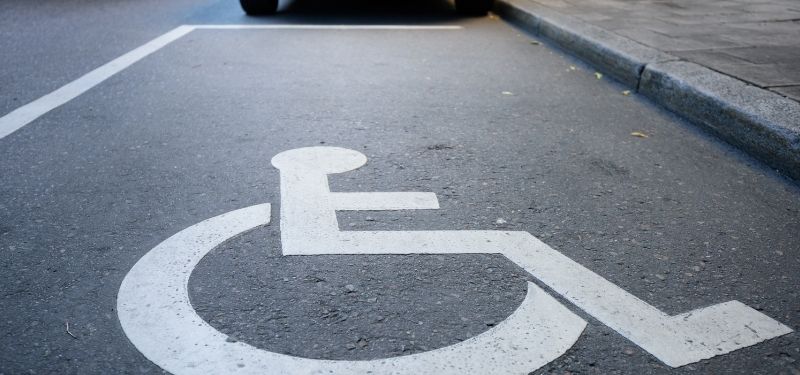Dec 28, 2021
With the COVID-19 pandemic putting a new emphasis on driving and having a personal vehicle, combined with the rise in the cost of parking in Boston and throughout the Commonwealth, the importance of parking rights is at an all-time high in condominium associations. As a result, condominium boards should be aware of their obligations with regard to providing handicapped accessible parking areas. We have received many questions on handicapped parking recently, and we want to share our findings and point out issues that boards should be prepared to face with regard to handicapped accessible parking spaces.
If a condominium has space available to be used by the public, the ADA, among its other requirements, mandates that handicapped parking spaces be provided for public use.
Generally, condominiums are not subject to the Americans with Disabilities Act (“ADA”), which requires reasonable modifications to facilities, policies and procedures for the accommodation of disabled individuals in order to comply with federal law, as most condominiums do not have space that may be used by and open to the public. If a condominium has space available to be used by the public, the ADA, among its other requirements, mandates that handicapped parking spaces be provided for public use.
Regardless of whether the ADA is applicable, the architectural requirements for parking spaces and parking lots when condominiums are built are circulated by the Massachusetts Architectural Access Board (“AAB”) and described in the Code of Massachusetts Regulations, 521 CMR 10.00 - “Public Use and Common Use Spaces in Multiple Dwellings.” 521 CMR 10.3 describes the requirements for handicapped parking spaces in condominiums, referred to as “accessible spaces” and described by the AAB as “multiple dwellings,” in pertinent part as follows:
The number of accessible spaces shall not be limited in number by 521 CMR 23.2.1, [entitled] Number but shall be provided in sufficient numbers to meet the needs of the dwelling unit occupants. If parking spaces are assigned to individual units, those spaces designated for accessible units shall have signage reserving said space. An international symbol of accessibility need not be used.
As described therein, there is no specific AAB requirement for the number of parking spaces that must be designated for the use of disabled condominium residents. Instead, 521 CMR 10.3 requires that accessible spaces must be provided in “sufficient numbers” to meet the needs of the residents. “Sufficient numbers” is obviously a vague phrase, and a standard that may change over the lifetime of a condominium, which may make this a challenging measure for boards to comply with.
For example, a new owner with a disability may purchase a unit and may require a space that is wider to accommodate a wheelchair, or a space that is located closer to the main entrance of the building to reduce the distance he or she must travel to enter the building. Suddenly, what constitutes a “sufficient number” of accessible spaces that are necessary to meet the needs of the condominium residents has changed.
As with any reasonable accommodation request, an accessible parking space request should be evaluated to confirm that it meets the requirements of the Federal Fair Housing Act for a disability, and the association should act swiftly to conduct an interactive process with the individual requesting the accommodation in order to make a determination as to whether a reasonable accommodation can and should be made.
The process of making an accommodation by providing an accessible space for a resident will vary depending on the nature of the parking rights that exist in the condominium and the way the rights are described and provided to the owners in the condominium documents. By way of example, some condominiums are built and designed with guest or visitor spaces that meet handicapped accessibility requirements. Those spaces can be explored to be provided as a reasonable accommodation to an owner or resident who requires one. Some associations maintain the ability, through language in their condominium documents, to relocate resident parking spaces at the board’s discretion. Those boards can therefore seek to make an accommodation by requiring a resident with an accessible or more accessible space to exchange their space with a resident who needs one. These situations show straightforward methods to seek making a reasonable accommodation and meet the sufficient number requirement. However, there are some associations, when faced with an otherwise reasonable accommodation request, that do not have a way to easily provide an accessible parking space which will require difficult and novel decisions to be in explored in hopes to find a reasonable accommodation.
It is important to have a solid understanding of the parking rights in dealing with any reasonable accommodation request related to parking and consultation with trust counsel is prudent, as an association can face stiff penalties from the AAB or the Massachusetts Commission Against Discrimination if request for accommodations are ignored or denied.


